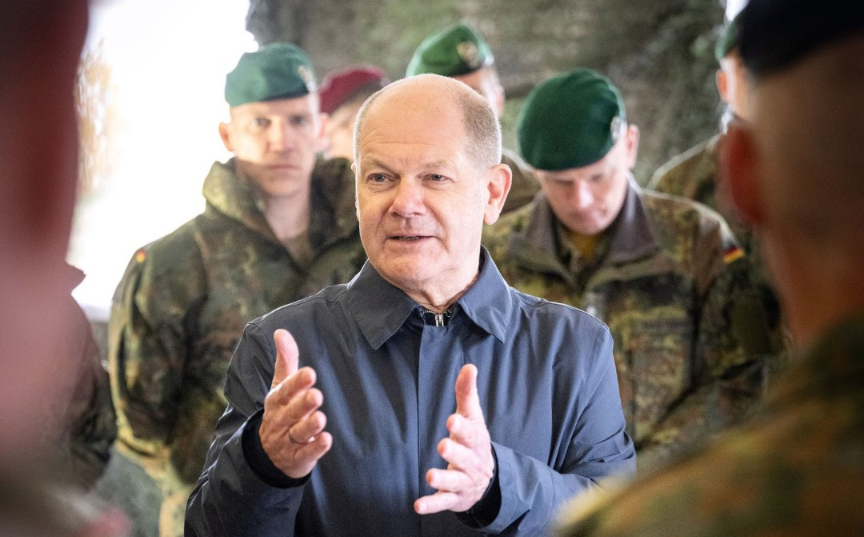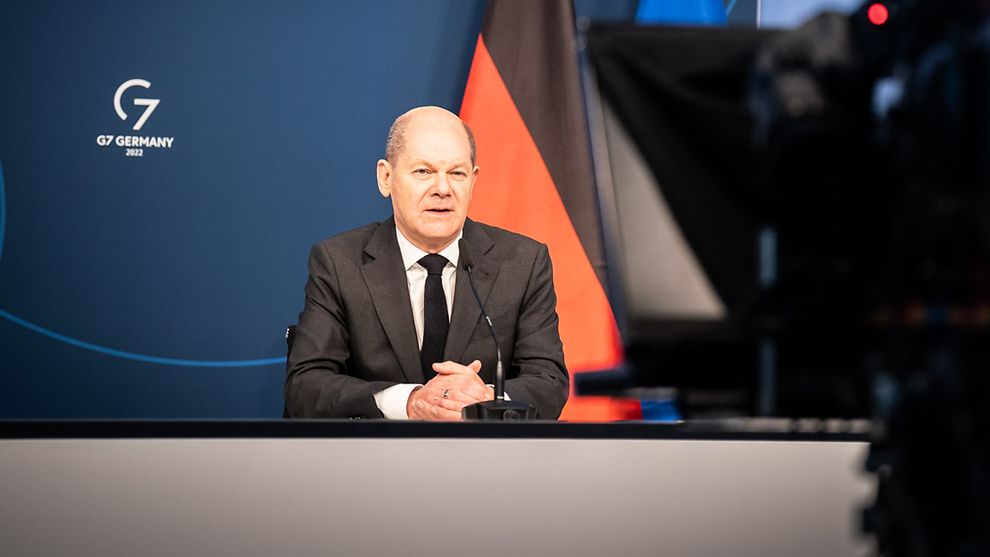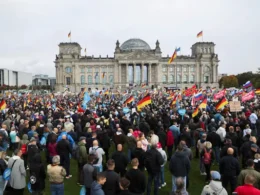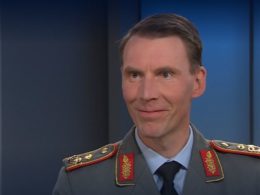According to a report by the Italian newspaper La Repubblica on 9 September, German Chancellor Olaf Scholz is allegedly preparing a "peace plan" for Ukraine to bring Moscow to the negotiations table. The plan reportedly includes allowing Russia to retain illegally captured Ukrainian territories, and is based on the hypothesis that Kyiv would somehow accept territorial concessions. The news has prompted reactions from both Kyiv and Moscow, as per BBC Ukraine.
La Repubblica says Scholz aims to go down in history as a "peace chancellor" by using the war in Ukraine to regain lost political positions. The newspaper cites sources in the German parliament, claiming that Scholz is working with some party members on a kind of "Minsk agreements" that could involve transferring part of Ukrainian territory to Moscow.
While Scholz has not officially commented on his alleged "ceasefire" plans, he stated in a recent interview with German channel ZDF that the next peace conference should include Russia. He mentioned discussing this issue with Ukrainian President Volodymyr Zelenskyy, with whom he has "good" relations.
The deals required troop withdrawal, which was impossible for Russia as it would lose control of occupied areas, and representation of Russian occupation authorities in Ukraine’s parliament, which Ukraine couldn’t accept as it implied recognizing Russian-run entities.
The documents were never ratified by Ukraine and failed to establish a lasting ceasefire, as low-intensity trench warfare persisted in eastern Ukraine. However, they provided Ukraine with several relatively calm years to reform its military before Russia's full-scale invasion in 2022.
Ukraine and Russia's reactions
In response to the publication, Andrii Yermak, the head of the Office of the President of Ukraine, emphasized that Ukraine would only agree to peace on the condition of regaining all its territories.
"Exclusively the Ukrainian 'peace formula', norms of international law, territorial integrity and sovereignty of Ukraine. This is the only way to justice," Yermak wrote on Telegram.
The Kremlin spokesman, Dmitry Peskov, stated that Russia is ready to consider any proposals but would like to receive details of the German Chancellor's initiative first.
"We don't brush off any plans in advance, but we need to understand what it's about. We ourselves learned about this from the media, that supposedly some plan is being prepared. We don't know what details might be involved there," Peskov said, according to BBC Ukraine.
Related:
- Media: Scholz calls for renewed peace effort in Ukraine
- Polish PM Tusk cancels Germany trip as bilateral relations sour
- Germany fears Russian defeat, says foreign policy expert
- No Taurus for Ukraine while Scholz reigns, claims foreign policy expert
- Scholz: G7’s $50 billion Ukraine aid deal sends clear message to Putin
- Scholz says Germany will transfer third Patriot system, additional IRIS-Ts and Gepards to Ukraine
- Scholz to Putin: We are prepared to defend ‘every square inch’ of NATO territory





